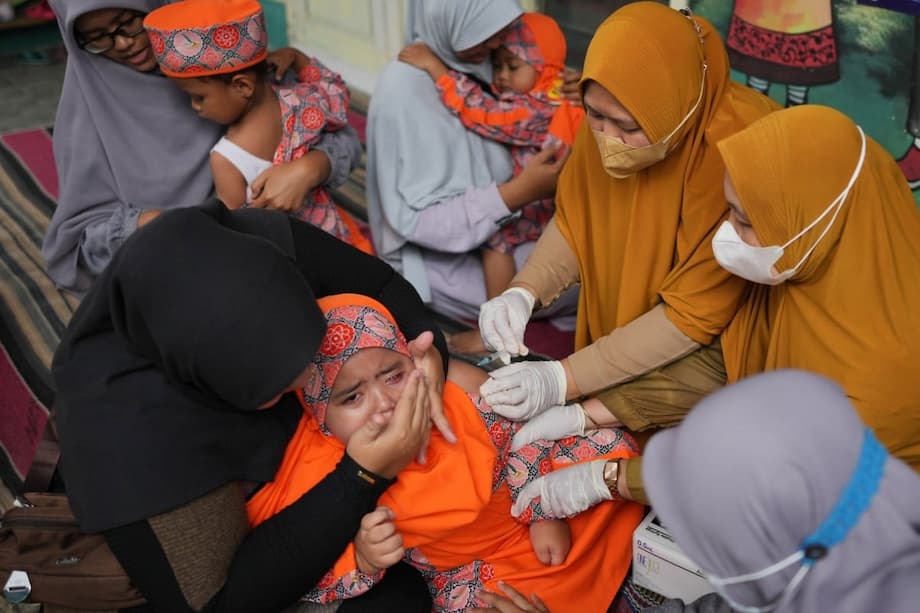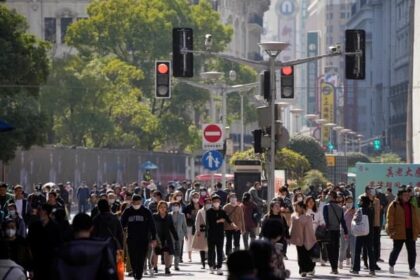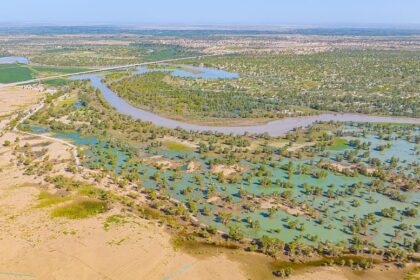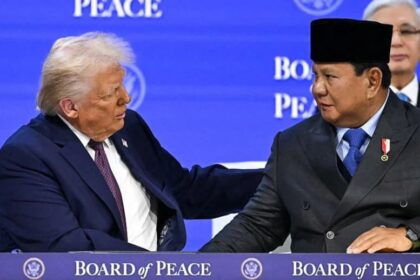Inside a nine month outbreak on Madura Island
Every day in Sumenep, a coastal city on Madura Island, small three person teams on motorbikes carry blue cold boxes from home to home. Inside are doses of the measles or measles rubella vaccine and lists of children who have not yet received them. The door to door effort is urgent. A measles outbreak on the island has stretched through nine months, with more than 2,600 children infected this year and at least 20 deaths.
- Inside a nine month outbreak on Madura Island
- Why halal status matters to many families
- What Islamic scholars and jurists teach about medical necessity
- Vaccination coverage, logistics and why measles spreads so fast
- On the front lines in Sumenep
- The role of religious leaders and community trust
- Are halal certified measles vaccines available now
- What parents ask and what the science says
- Lessons from Aceh and recent research
- Key Points
At the peak between May and July, isolation wards in regional hospitals filled quickly. Staff treated well over one hundred measles cases a day. Health centers now try to close immunity gaps before the next school term and the rainy season. Their work reaches deeply religious communities where parents weigh the vaccine against questions of halal compliance.
The tension arises from a common additive. Some measles and measles rubella vaccines use gelatin made from pigs as a stabilizer that helps the fragile live virus survive transport and storage. Many families in this majority Muslim district believe anything from pigs is unclean. Others accept the vaccine after a discussion with a nurse or a local cleric. The regional government has opened clinic days, brought teams into schools and launched house calls. More than 78,000 doses have been made available, although health workers cannot force hesitant parents to agree.
Why halal status matters to many families
Halal refers to what is permissible in Islamic law. Pork and its derivatives are haram, or forbidden. Gelatin made from pigs is widely used in food and medicines because it protects delicate ingredients from heat and helps them keep their shape during transport. In live virus vaccines, gelatin reduces the risk that the vaccine will lose potency when vials move through long supply chains and warmer climates. That technical role has a real human consequence in a country of thousands of islands where cold chain interruptions can happen.
Indonesia’s highest Islamic authority, the Indonesian Ulema Council (MUI), has issued several rulings on immunization. A 2016 opinion permitted vaccination and encouraged halal certification. In 2018, after reviewing the measles rubella vaccine then in use, MUI declared it haram because of porcine gelatin and elements of production for the rubella component that involve human cell lines. The same ruling stated that the vaccine could be used until a halal alternative becomes available because protecting life is a priority.
That balance, forbidden in principle yet allowed in a public health emergency, still leaves many parents uneasy. Some districts paused school based campaigns after the 2018 ruling. Others pressed ahead with counseling and consent. The question returns with each new cluster of measles cases and each new vaccination day.
Musthafa, general secretary of the Indonesian Ulema Council in Sumenep, said the long term answer lies in procurement that satisfies religious law.
“We have high hopes for Muslims in Indonesia, who are the ones consuming it. Let us ask the government, in this case the Health Office and the Ministry of Health, to find a halal vaccine.”
Local clerics describe parents who want to vaccinate but feel torn. Public health officials say transparent dialogue with religious leaders often unlocks consent, especially when families have seen measles in their neighborhood.
What Islamic scholars and jurists teach about medical necessity
Across the Muslim world, many scholars apply principles that prioritize the preservation of life when there is no lawful alternative. Jurists often cite necessity and public benefit to allow medicines that would normally be prohibited. Some scholars add an argument about transformation, the idea that a substance can change into something else during processing. Others disagree. The upshot is that parents hear different emphases depending on the preacher and the province.
That mix of views appears in Sumenep as well.
Pujiati Wahyuni, a Muslim nurse and mother in the city, sees it while counseling families.
“Yes, there are some. Islam is a big religion. Maybe some Muslim people just do not want to get vaccinated, and it is not just now, but since they were born,” she said.
For many households, a simple assurance from a trusted ustadz or ustadzah that protecting a child takes precedence during an outbreak can be decisive.
Vaccination coverage, logistics and why measles spreads so fast
Measles is one of the most contagious viruses known. An infected person can spread it to nine out of ten unvaccinated people nearby. It moves through the air and lingers in a room long after a cough. That is why health agencies set a high target. At least 95 percent of children need two doses to block outbreaks. Last year, global estimates showed 84 percent of children received a first dose and 76 percent received a second. Indonesia fell below its targets, with measles rubella vaccinations reaching 86.6 percent of the goal in 2023, then 82.3 percent in 2024.
When coverage dips, measles finds the gaps. In 2018 a large outbreak in the eastern province of Papua caused dozens of deaths. The current run of cases on Madura Island reflects the same math. The virus finds unvaccinated pockets, including families who delayed for religious reasons, families who missed clinic days while traveling, and families who faced transport or work barriers. Closing those gaps demands money for fuel and cold boxes, staff to run school clinics, and community voices that parents trust.
The stabilizer debate also has a practical edge. Gelatin helps live vaccines survive bumps in the cold chain. Any switch to a different stabilizer would need new stability data and regulatory review to avoid reduced protection, especially in rural areas where reliable refrigeration can be harder to maintain.
On the front lines in Sumenep
At an Islamic kindergarten in Pamolokan village, the head of the community health center met mothers in a small classroom before opening any vials. She explained how measles spreads, why two doses matter and what side effects to expect. During the peak months of the outbreak, local hospitals treated more than one hundred cases a day, and some parents watched neighbors rush feverish children to care.
Ayu Resa Etika, a 28 year old mother from Kebunan village, had delayed her son’s second dose. She changed her mind after seeing nearby families struggle.
“There is a little doubt because it is not halal. But despite all that, this is for the sake of the child’s health. The effects are quite extraordinary; it can cause death. I am afraid that if my son is not vaccinated against measles, that is the risk. So it is OK, as long as the effects are good,” she said.
Health workers say stories like this are common. Many parents who hesitate early return after a dialogue with a midwife, a cleric or a teacher. Consent grows when mothers can ask questions in familiar spaces and see neighbors do the same.
The role of religious leaders and community trust
Religious leaders shape decisions in a powerful way. MUI at the national level sets guidance. Provincial and district branches, along with local imams, pesantren leaders and women’s study circles, translate that guidance into daily life. Joint planning between health offices and faith leaders can reduce confusion and prevent mixed messages across neighborhoods.
Outreach works best when it is two way. Health teams explain ingredients and side effects in plain language. Clerics explain the boundaries of permissibility, including the current allowance to use the vaccine while no halal alternative exists. Parents gain clarity and do not feel pressured.
What has worked in other provinces
- Regular forums where health officials and ulama review vaccine contents, cold chain steps and the exact wording of fatwas.
- Friday sermons and village gatherings that explain why the vaccine is allowed during an outbreak when no halal option exists.
- Vaccination days at pesantren and mosques with private spaces and female health workers to support mothers’ questions.
- Open vial sessions where nurses show labels and explain each ingredient in simple terms.
- Consent forms that reference religious guidance and list local clerics available for consultation.
Are halal certified measles vaccines available now
Most licensed measles or measles rubella vaccines in wide use include gelatin from pigs as a stabilizer. Researchers and manufacturers have explored options such as fish gelatin, plant based polymers and sugar based excipients. Replacing an ingredient in a live vaccine is not a simple swap. It requires new batches, stability testing, and review by drug regulators to confirm that heat tolerance and effectiveness are unchanged. Indonesia is seeking options, but supply contracts, licensing and training would take time even after a halal product receives approval.
A halal certification process would follow ingredients from raw materials to the final vial. It would also audit cleaning agents, packaging and labeling. Technology transfer to a regional producer or contract manufacturing with a clear halal audit trail could help. Cooperation among Muslim majority countries could create a larger market for a single product, which would encourage manufacturers to invest in a halal compliant formula.
What parents ask and what the science says
Is the measles vaccine halal or haram
MUI has ruled that the measles rubella vaccine in current use is haram because it contains gelatin from pigs and because parts of the production process for the rubella component use human cell lines. The ruling also states that using the vaccine is allowed while no halal alternative exists, because protecting life takes precedence. Many Islamic scholars in Indonesia and abroad have issued similar guidance that prioritizes preventing disease when no lawful option is on hand.
What is in the vaccine
The measles vaccine contains a weakened form of the measles virus that teaches the immune system to fight the disease. The virus is grown in chick embryo cells. In the measles rubella vaccine, the rubella component is produced using a human cell line that was developed decades ago. The final product is purified. A small amount of gelatin, sugar and other salts are used to keep the vaccine stable during transport.
How safe is it
Measles vaccines have been used for decades and have a strong safety record. Side effects are usually mild, like a sore arm, a brief fever or a rash. Serious allergic reactions are very rare. The risks from measles itself are far greater. Measles can cause pneumonia, brain swelling and death, especially in very young children and those who are malnourished.
What happens if a child misses a dose
Children need two doses for strong protection. If a dose was missed, clinics can provide catch up shots. Health workers in Sumenep are offering appointments in schools and homes so families can complete the schedule.
If a child already had measles, do they still need shots
Most people who recover from measles have lasting immunity to that virus. The combined measles rubella vaccine also protects against rubella, a disease that can cause serious birth defects if a pregnant woman is infected. Local clinics can advise on the best schedule for each child.
Lessons from Aceh and recent research
A recent survey in Aceh, where sharia is enforced locally, examined 1,689 Muslim parents. Only 34 percent of children were fully vaccinated. Twenty nine percent of parents expressed vaccine hesitancy and 32 percent voiced specific concerns that ingredients were not halal. Those who were hesitant were far less likely to have a fully vaccinated child. The findings suggest that religion based concerns are closely linked to whether children complete their shots.
National analyses of earlier decades show some progress despite setbacks. Between 1991 and 2017, measles vaccination increased among Muslims and non Muslims, and the gap between the two groups narrowed. Coverage among Muslims stagnated in the years that followed, when religious debates about ingredients became more prominent. Large differences remain by province, with Aceh historically among the lowest. Wealth, education and access still shape outcomes along with religion.
The evidence points to practical steps. Build partnerships with local ulama. Publish clear ingredient lists in Bahasa Indonesia. Invite mothers and fathers to observe vaccine days and ask questions. Use consistent messages across clinics, schools and mosques. Make it simple for families to finish two doses by bringing services to where they live and learn.
Key Points
- The measles outbreak on Madura Island has lasted nine months, infecting more than 2,600 children and causing at least 20 deaths.
- Health teams in Sumenep are taking vaccines house to house and have made more than 78,000 doses available.
- Halal concerns center on gelatin from pigs used as a stabilizer in some measles and measles rubella vaccines.
- MUI ruled the vaccine haram in 2018 but permits its use while no halal alternative exists, prioritizing protection of life.
- Indonesia’s measles rubella coverage fell to 86.6 percent of target in 2023 and 82.3 percent in 2024, below the 95 percent needed to prevent outbreaks.
- Hospitals in Sumenep treated over one hundred measles cases a day at the peak between May and July.
- Studies in Aceh link religion based concerns to lower completion of childhood vaccination.
- Engaging religious leaders, answering ingredient questions and making vaccination convenient are key to raising coverage.












